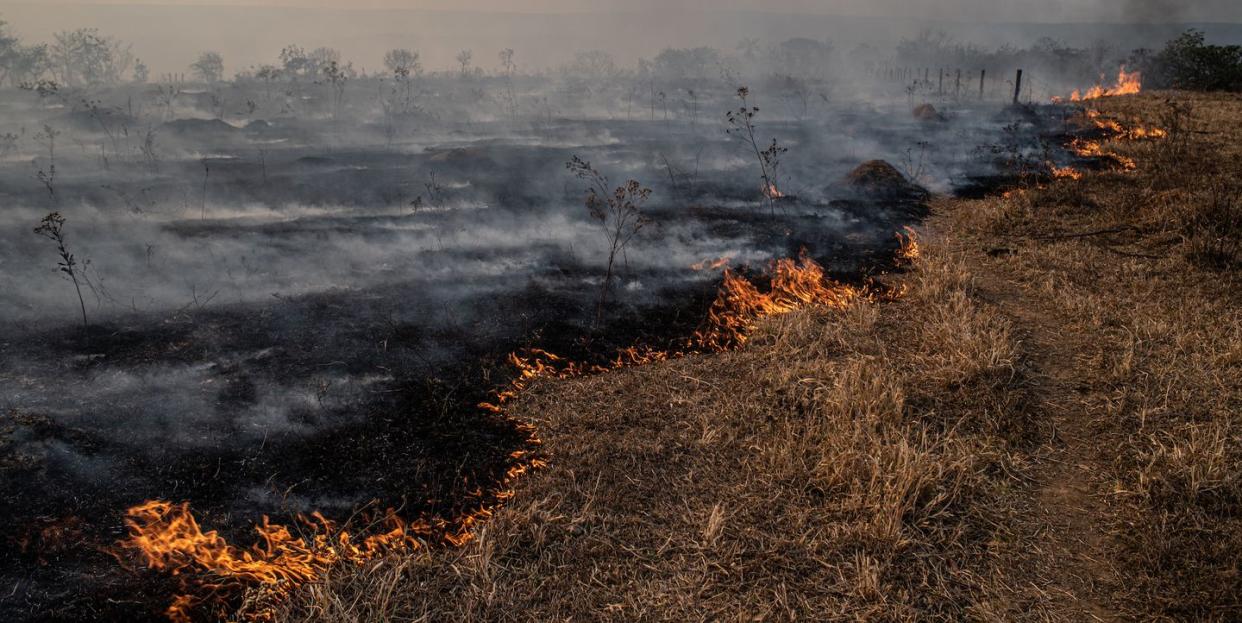This Report on the Security Risks of the Climate Crisis Was Not Compiled By Tree-Huggers

Say what you will about the Pentagon, and I’ve said plenty, but it has been more consistently energetic in trying to confront the climate crisis than just about any other institution of our government. It has so much skin in the game that it doesn’t have the luxury of incrementalism and denialism. It does not want the Navy to one day have to anchor aircraft carriers off the shores of Columbus, Ohio.
On Thursday afternoon, the Pentagon and the intelligence community issued a chillingly clear-eyed report on the looming national-security crisis coming upon us as the climate crisis deepens. It is thorough, and thoroughly depressing. From the Washington Post:
The Pentagon report in particular marks a shift in how the U.S. military establishment is incorporating climate issues into its security strategy, analysts said. Until now, when the Defense Department has considered climate change, it has tended to focus on how floods and extreme heat can affect military readiness rather than the broader geopolitical consequences of a warming world. Now it is worried that climate change could lead to state failure.
“Climate change is altering the strategic landscape and shaping the security environment, posing complex threats to the United States and nations around the world,” Defense Secretary Lloyd Austin said in a statement that accompanied the Pentagon report. “To deter war and protect our country, the [Defense] Department must understand the ways climate change affects missions, plans, and capabilities.”
This study includes a National Intelligence Estimate, the first time climate has been addressed in such a way. The NIE warns that the effect of the climate crisis on national security both here and around the world is already profound and getting worse.
“We assess that climate change will increasingly exacerbate risks to U.S. national security interests as the physical impacts increase and geopolitical tensions mount about how to respond to the challenge,” the document states. It also concludes that while momentum to reduce global emissions of greenhouse gases is growing, “current policies and pledges are insufficient” to meet the goals that countries laid out in the landmark Paris climate accord...
…The Pentagon warns that disruption to fisheries could spark conflict over food security. Unpredictable rainfall might increase tensions over access to rivers that cross national boundaries, such as the Nile and the Mekong. Even efforts to combat climate change could lead to unintended consequences, such as conflicts over access to the rare minerals that are needed to build circuitry and wind turbines. The report says the Defense Department should ready itself to provide humanitarian assistance in climate crises, incorporate climate-related issues into its war-games — and also work on “countering malign actors who seek to exploit climate change to gain influence.” Some of the most specific analyses remained classified.
These are not utopian tree-huggers making these predictions. They are hard-nosed intelligence analysts who don’t talk to blueberries before picking them or ask permission of mushrooms before eating them. They are people who spend their time looking for loose nuclear material and the next bin Laden. I have no use for some of their past crimes and blunders, nor for the cover-ups that ensued thereafter. The intelligence “community” has been in need of serious reform as long as I’ve been alive. But there’s no reason to discount this report. We didn’t all work to overthrow the elected governments of Iran and Guatemala, but we all are living with the consequences of the climate crisis, and our descendants will live with those consequences as they deepen. And the NIE is unsparing in its assessment of whether or not current nation-states are willing to confront the crisis head-on.
The NIE concludes that geopolitical tensions are likely to rise in the coming decades as countries struggle to deal with the physical effects of climate change — which scientists say already is producing more devastating floods, fires and storms — as well as the political ones. Mitigating climate-related disasters may call for solutions that some countries cannot afford and political will that some leaders cannot muster. The physical effects are likely to be most keenly felt in parts of the world already being reshaped — such as the Arctic — and in regions and countries that are particularly vulnerable because they experience extreme climate events, such as hurricanes or droughts, and because their governments are ill-equipped to manage the fallout.
The NIE identifies 11 countries in that category of acute risk: Afghanistan, Colombia, Guatemala, Haiti, Honduras, India, Iraq, Myanmar, North Korea, Nicaragua and Pakistan.
Don’t worry, though. Only three of those countries have nuclear weapons.
You Might Also Like

 Yahoo Movies
Yahoo Movies 
